#John Bel Edwards
Explore tagged Tumblr posts
Text
Louisiana governor vetoes state ban on Trans Healthcare passed on ‘propaganda and misinformation’
1K notes
·
View notes
Text
Louisiana Governor DILFs

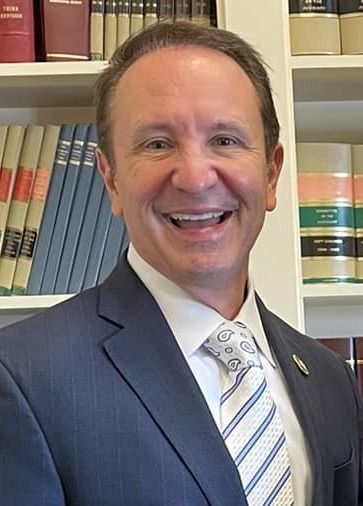
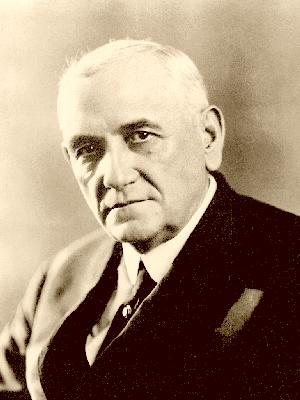




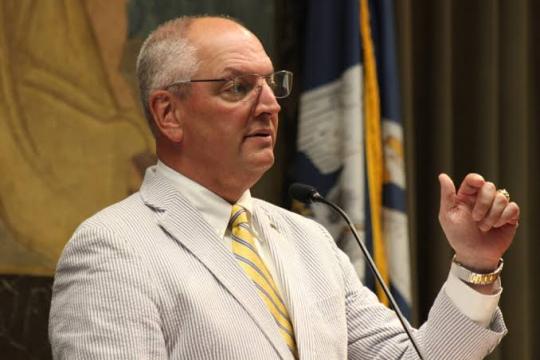

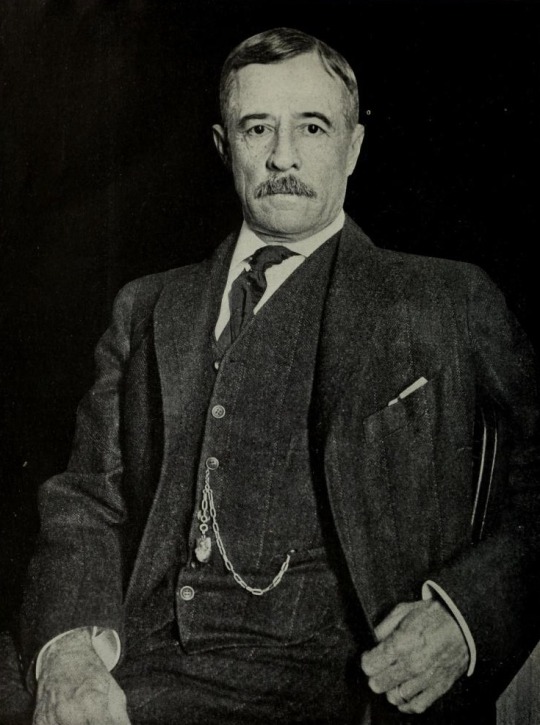
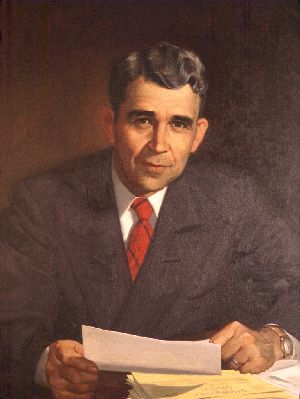

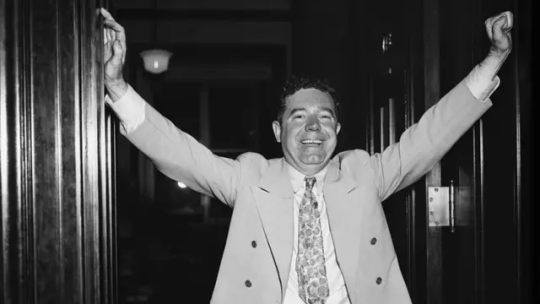
Earl Long, Jeff Landry, Henry L. Fuqua, Buddy Roemer, Dave Treen, Edwjn Edwards, Mike Foster, John Bel Edwards, Jimmie Davis, John M. Parker, Robert F. Kennon, John McKeithen, Huey Long
#Earl Long#Jeff Landry#Henry L. Fuqua#Buddy Roemer#Dave Treen#Edwjn Edwards#Mike Foster#John Bel Edwards#Jimmie Davis#John M. Parker#Robert F. Kennon#John McKeithen#Huey Long#GovernorDILFs
22 notes
·
View notes
Text
Louisiana Rail To Expand
Louisiana takes a major step towards reconnecting Baton Rouge and New Orleans by train after over 50 years. On Thursday, Governor John Bel Edwards recently signed a pivotal service development agreement aimed at re-establishing intercity passenger rail service between Baton Rouge and New Orleans. The agreement represents a long-anticipated milestone for a project initially set in motion back in…

View On WordPress
0 notes
Text

#angola#humanrights#usa#america#louisiana#class war#biden administration#joe biden#biden crime family#hunter biden#biden will destroy america#john bel edwards#classwar#this has been a psa#important psa#just a psa#psa#united states#unitedstateofamerica#unitedsnakes#native american#antinazi#antiauthoritarian#jail#prison#incarceration#incarcerated people#incarcerated women#fuck the gop#fuck the police
0 notes
Text

The 100 Best Books of the 21st Century.
As voted on by 503 novelists, nonfiction writers, poets, critics and other book lovers — with a little help from the staff of The New York Times Book Review.
NYT Article.
*************
Q: How many of the 100 have you read? Q: Which ones did you love/hate? Q: What's missing?
Here's the full list.
100. Tree of Smoke, Denis Johnson 99. How to Be Both, Ali Smith 98. Bel Canto, Ann Patchett 97. Men We Reaped, Jesmyn Ward 96. Wayward Lives, Beautiful Experiments, Saidiya Hartman 95. Bring Up the Bodies, Hilary Mantel 94. On Beauty, Zadie Smith 93. Station Eleven, Emily St. John Mandel 92. The Days of Abandonment, Elena Ferrante 91. The Human Stain, Philip Roth 90. The Sympathizer, Viet Thanh Nguyen 89. The Return, Hisham Matar 88. The Collected Stories of Lydia Davis 87. Detransition, Baby, Torrey Peters 86. Frederick Douglass, David W. Blight 85. Pastoralia, George Saunders 84. The Emperor of All Maladies, Siddhartha Mukherjee 83. When We Cease to Understand the World, Benjamin Labutat 82. Hurricane Season, Fernanda Melchor 81. Pulphead, John Jeremiah Sullivan 80. The Story of the Lost Child, Elena Ferrante 79. A Manual for Cleaning Women, Lucia Berlin 78. Septology, Jon Fosse 77. An American Marriage, Tayari Jones 76. Tomorrow, and Tomorrow, and Tomorrow, Gabrielle Zevin 75. Exit West, Mohsin Hamid 74. Olive Kitteridge, Elizabeth Strout 73. The Passage of Power, Robert Caro 72. Secondhand Time, Svetlana Alexievich 71. The Copenhagen Trilogy, Tove Ditlevsen 70. All Aunt Hagar's Children, Edward P. Jones 69. The New Jim Crow, Michelle Alexander 68. The Friend, Sigrid Nunez 67. Far From the Tree, Andrew Solomon 66. We the Animals, Justin Torres 65. The Plot Against America, Philip Roth 64. The Great Believers, Rebecca Makkai 63. Veronica, Mary Gaitskill 62. 10:04, Ben Lerner 61. Demon Copperhead, Barbara Kingsolver 60. Heavy, Kiese Laymon 59. Middlesex, Jeffrey Eugenides 58. Stay True, Hua Hsu 57. Nickel and Dimed, Barbara Ehrenreich 56. The Flamethrowers, Rachel Kushner 55. The Looming Tower, Lawrence Wright 54. Tenth of December, George Saunders 53. Runaway, Alice Munro 52. Train Dreams, Denis Johnson 51. Life After Life, Kate Atkinson 50. Trust, Hernan Diaz 49. The Vegetarian, Han Kang 48. Persepolis, Marjane Satrapi 47. A Mercy, Toni Morrison 46. The Goldfinch, Donna Tartt 45. The Argonauts, Maggie Nelson 44. The Fifth Season, N.K. Jemisin 43. Postwar, Tony Judt 42. A Brief History of Seven Killings, Marlon James 41. Small Things Like These, Claire Keegan 40. H Is for Hawk, Helen Macdonald 39. A Visit from the Goon Squad, Jennifer Egan 38. The Savage Detectives, Roberto Balano 37. The Years, Annie Ernaux 36. Between the World and Me, Ta-Nehisi Coates 35. Fun Home, Alison Bechdel 34. Citizen, Claudia Rankine 33. Salvage the Bones, Jesmyn Ward 32. The Lines of Beauty, Alan Hollinghurst 31. White Teeth, Zadie Smith 30. Sing, Unburied, Sing, Jesmyn Ward 29. The Last Samurai, Helen DeWitt 28. Cloud Atlas, David Mitchell 27. Americanah, Chimamanda Ngozi Adichie 26. Atonement, Ian McEwan 25. Random Family, Adrian Nicole LeBlanc 24. The Overstory, Richard Powers 23. Hateship, Friendship, Courtship, Loveship, Marriage, Alice Munro 22. Behind the Beautiful Forevers, Katherine Boo 21. Evicted, Matthew Desmond 20. Erasure, Percival Everett 19. Say Nothing, Patrick Radden Keefe 18. Lincoln in the Bardo, George Saunders 17. The Sellout, Paul Beatty 16. The Amazing Adventures of Kavalier & Clay, Michael Chabon 15. Pachinko, Min Jin Lee 14. Outline, Rachel Cusk 13. The Road, Cormac McCarthy 12. The Year of Magical Thinking, Joan Didion 11. The Brief Wondrous Life of Oscar Wao, Junot Diaz 10. Gilead, Marilynne Robinson 9. Never Let Me Go, Kazuo Ishiguro 8. Austerlitz, W.G. Sebald 7. The Underground Railroad, Colson Whitehead 6. 2666, Roberto Bolano 5. The Corrections, Jonathan Franzen 4. The Known World, Edward P. Jones 3. Wolf Hall, Hilary Mantel 2. The Warmth of Other Suns, Isabel Wilkerson 1. My Brilliant Friend, Elena Ferrante
855 notes
·
View notes
Note
i live in the south, and i used to follow someone on here who lives in the same state as me, who i thought would've understood how difficult things are for marginalized people who live in red states and why we needed harris to win. but they kept reblogging posts about how both parties are the same and anyone who votes for harris is voting for genocide (as if letting trump win was going to be any better?? he's just started talking about wanting to "clean out the whole thing" and forcibly displace all remaining palestinians by making them move to jordan and egypt, an idea which every group who would be affected hates 🙄). i kept hoping they'd finally realize the very obvious fact that contributing to trump's win wasn't going to make things better for any decent person in the world but the last straw for me was when they posted something like "well i was going to go vote for [fictional character] but the line was too long so i just went home haha!!" i blocked them right after that, and now of course trump is in office and things are going to get so much worse for me and for them as those of us in red states have so much less of a chance to push back against our local governments and all of the bigots who voted for trump will feel more emboldened by his win. so yeah, i share your small fantasy that people like that will wake up and realize they were wrong for spreading these ideas. sorry for venting in your inbox though lol, you don't have to reply to this if you don't want to!
One of my best friends in politics is from Louisiana. He's gay and when he came out his parents sent him to a pray the gay away camp where... really horrible shit happened. And I think about that skinny kid coming out of just the most horrible shit imaginable and being a Freshman in college working his ass off for a Red State Democratic Senator, Mary Landrieu, Mary didn't win, but he worked SO hard for her. And we met working on Hillary's campaign together, boy has bad luck with Democratic women running for office.
Any ways the point is, I love red state Dems, I really do. My friend really loved John Bel Edwards, now I don't think either of us really fully agreed with Edwards, I know my friend was as feminist as a gay boy can be and believed in the right to an abortion totally, Edwards was/is one of the rare pro-life Democrats. But my friend understood, a Democratic governor would protect more people's rights, do more for the poor and the disadvantaged. Edwards' signed an order day one in office banning LGBT discrimination in the state government, when a Republican took over 8 years later, day one, threw that order out, a lot like Trump undoing all the pro-LGBT orders Biden did and rolling back trans rights/access to federal documents that came about under President Obama and Secretary of State Hillary Clinton.
I think thats the thing, in Red States and in America at large we share this big country with a lot of people most of whom are more conservative than I am, so how do I get as much of what I want as I can? Do I vote Mickey Mouse for President? no I vote for the candidate that will do the most good, I won't always agree with them, I don't agree with myself most of the time.
idk it's not... theoretical to me? I'm likely not writing my best work here but when it comes to voting I think about all the people in my life who needed help, if they got it or not, and the ways they were left behind or would have been life behind and all the kids out there, queer kids trans kids, the poor always the poor kids, you know and the loss they'll suffer because of 4 years of a Republican President. And yes Trump is a VERY bad Republican President but if we ever get to some future after him there will come a time where maybe a bland centrist Democrat will run against a business focused Republican, Bush V Gore? and people will say "oh there's no difference" and there is.
oh also I want to say, the little old ladies, the normie "cringe lib" wine moms and grandmas (and yes dads and granddads, but more women then men tbh) who struggle with a grand-nephews pronouns did more for trans rights by going out knocking doors for Harris one weekend, then shitty leftist posters (trans and not) who endlessly attacked Dems and voting.
any ways I'm sorry all this is happening, idk what state you're in or how bad it is or will be. I don't have easy answers for living through this long night of the soul. As Thomas Paine put it all those years ago "These are the times that try men's souls: The summer soldier and the sunshine patriot will, in this crisis, shrink from the service of his country; but he that stands it now, deserves the love and thanks of man and woman." it is trying my soul, but I will endure as we all must endure, we can not give up we cannot fail, we cannot allow ourselves to be ground down by fascists, and by their handmaids who act as if they're on our side, I hope everyone is looking to what they can do, and what the next chance they have to fight back and take back political power is.
47 notes
·
View notes
Text
Some fascinating Louisiana news for y'all. So recently, the office of the Pope reached out to our (Catholic, Democrat) governor, John Bel Edwards, and implored him to grant some sort of clemency to our glut of death row inmates. Either converting their sentences to life in prison or pardoning them. John Bel, as a southern democrat, has been very silent on his view of the death penalty for most of his career - but now that he's term-limited out of running for governor again, he's become a very public supporter of abolishing it.
Our (Catholic, Republican) state attorney general, Jeff Landry, who is also the frontrunner in the upcoming gubernatorial election, is attempting to subvert the clemency appeal of death row inmates and prevent a single appeal from being heard. Both because he is an ardent supporter of the death penalty, and so that he can drum up political clout among the pro-death penalty conservative voters throughout Louisiana and minimize the chance of him not making the run-offs.
198 notes
·
View notes
Text
This is from January of 2024.
For years, the death penalty in the United States appeared to be on an irreversible decline, perhaps even headed to extinction. Death sentences have fallen by about 90 percent since their mid-1990s peak, when more than 300 were imposed every year. In 1999, there were almost 100 executions nationwide; in 2021, there were 11.
That downward trend is beginning to reverse. Driven by hardline prosecutors and tough-on-crime governors, the number of executions jumped 64 percent in 2022 and increased again in 2023 to a total of 24, the highest in five years.
Perhaps the most crucial player in the death penalty’s resurrection, though, is the U.S. Supreme Court, whose historic role of maintaining guardrails has given way to removing roadblocks. Under the conservative supermajority put in place by President Donald Trump, the justices are far more likely to propel an execution forward than intercede to stop it, including in cases where guilt is in doubt or where the means of carrying it out could result in a grotesque spectacle of pain and suffering.
States are responding. On Thursday, Alabama is scheduled to execute someone using a potentially dangerous method that has never before been used in the U.S. South Carolina announced it is restarting executions after a 12-year pause, a decision which is now the subject of a legal challenge that will be heard by the state’s highest court in February. On Dec. 22, a Utah judge ruled that the state could use a firing squad to execute Ralph Leroy Menzies, who was convicted and sentenced to death in 1988, even though past experiments with this method demonstrated that there was a “risk of a ‘botched’ execution, such as bullets missing the target placed over a person’s heart.” Earlier in 2023, Florida Gov. Ron DeSantis signed six death warrants (compared to just two during his entire first term in office) and a law that ended a unanimous jury requirement for death sentencing. Florida also enacted a law that allows capital punishment in cases involving sex crimes against children in non-lethal cases; in December, a Florida prosecutor invoked it to seek the death penalty against a man accused of multiple counts of sexual battery against a child under the age of 12. The law flatly contradicts a line of Supreme Court precedent barring the death penalty in cases where “no life was taken.” DeSantis has vowed to defend the legislation against any legal challenge, offering the justices an opportunity to reconsider an entire line of death penalty jurisprudence. Similar laws have been proposed in Tennessee and Missouri.
On Nov. 16, Alabama executed Casey McWhorter, who had just turned 18 when he participated in the 1993 robbery and shooting death of the victim. The jury could not reach a unanimous verdict on the death sentence, but the judge imposed it anyway. In Louisiana, a coalition of prosecutors led by Republican Attorney General Jeff Landry defeated Democratic Gov. John Bel Edwards’ effort to commute 56 death row sentences. Landry, a death penalty proponent who has pushed for Louisiana to expand its execution methods to include hangings and firing squads, replaced Edwards as governor in January. “If Jeff Landry wants to do it,” said Cecelia Kappel, the executive director of the Capital Appeals Project in New Orleans, “he will find a way to do it.”
So far, the new wave of completed executions has been confined to the deep South. But death penalty sentences are not, and other parts of the country may soon start carrying them out. Between 2001 and 2021, the number of people on death row in Maricopa County, Arizona, increased by more than half. One of the most avid proponents of capital punishment in the country is Mike Hestrin, the district attorney of Riverside County, California, which now has the second-largest population of people on death row — behind only Los Angeles County, which has increased its death row population by 25 percent over the past two decades.
In 1976, the Supreme Court famously declared that “death is different,” and demanded an extra level of scrutiny because a mistake is irreversible. Historically, in particularly troubling instances involving state misconduct or abysmal defense lawyering, the Court sometimes intervened at the eleventh hour — from 2013 to 2023, it stayed an execution just 11 times and vacated stays of execution 18 times, according to Bloomberg Law.
Since the death of Justice Ruth Bader Ginsburg and her replacement with Amy Coney Barrett in 2020, the Court has stopped an execution only twice and reversed a lower court to permit an execution nine times. In 2023, 26 condemned prisoners asked the Court to hear their cases; 25 were rejected. The message is clear: Prosecutors eager to seek and swiftly impose death sentences can reliably do so without judicial interference.
In the early aughts, the Supreme Court issued a series of rulings that placed bright-line limitations on how prosecutors could use the death penalty, barring the execution of the intellectually disabled defendants in Atkins v. Virginia, and those under the age of 18 in Roper v. Simmons. Neither category of person, the Court said, were as blameworthy as run-of-the-mill defendants, pointing out that most industrialized countries had long since come to the same conclusion. In Roper, the Court was blunt: “It is fair to say that the United States now stands alone in a world that has turned its face against the juvenile death penalty.”
But in 2019, the U.S. Supreme Court reversed course and started on its current path. In Bucklew v. Precythe, a majority of the court opined that the Eighth Amendment’s prohibition against cruel and unusual punishment “does not guarantee a prisoner a painless death — something that, of course, isn’t guaranteed to many people, including most victims of capital crimes.” In the court’s reasoning, the excruciating pain the defendant might suffer during execution paled in comparison with the terror and mayhem he inflicted during his crimes.
In that same opinion, the Court indicated an impatience with pausing executions while it considered whether to hear the underlying claims from appellate attorneys. Justice Neil Gorsuch warned his colleagues to be skeptical when reading eleventh hour death row appeals: “Last minute stays should be the extreme exception, not the norm.”
It has been. Consider the 13 federal prisoners who were sent to the death chamber in the final months of Trump’s presidency. In a series of terse orders, issued without briefing, argument or public airing of the legal issues, the court blessed the rushed, furious pace. Using this opaque process, which legal scholars call the “shadow docket,” the justices erased lower-court injunctions against executions in seven cases and turned away last-minute requests for stays in the other six. During the 16 years in which Barack Obama and George W. Bush occupied the White House, the Court had invoked the shadow docket to rule for the government a total of four times and “never in a death penalty case,” according to Stephen Vladeck, a professor at the University of Texas School of Law. In Trump’s single term in office, the number jumped to 28, including non-capital cases.
More recently, the Court has rejected cases that advocates say are riddled with error or rest on shaky evidence. On Oct. 2, the Court declined to consider the capital case of Robert Leslie Roberson III, whose conviction is based on dubious “shaken baby syndrome” science. Roberson will likely soon have an execution date. The same day, the justices also declined to hear the case of Toforest Johnson, who was convicted of murdering a law enforcement officer based on the testimony of a woman who was paid $5,000 by police in exchange for her testimony that she overheard him confessing — a payment that was hidden from Johnson and the jurors.
On Oct. 30, the Court turned away an appeal from Brent Brewer, whose death sentence for a 1990 homicide in Amarillo, Texas, hinged on testimony from a discredited forensic psychiatrist who said he would be a permanent danger in prison. Texas executed Brewer on Nov. 9. Two more people — McWhorter and a Texas man named David Renteria — were both executed on Nov. 16 after the justices declined to intervene.
Emboldened by the green light from the Supreme Court — along with lower federal courts following its lead — the states have gotten creative.
A major factor in the decade-plus drop in executions that preceded the recent upswing was an inability by states to secure the drugs necessary to follow a well-established and legally sanctioned three-drug injection protocol. The supply of sodium thiopental, the drug meant to send the condemned into a coma before the others were administered, dried up. Some states started using midazolam instead, which is not as effective. The change resulted in high-profile, botched executions with prisoners bucking against their restraints, screaming in pain and remaining alive for hours or even surviving the procedure. Anti-capital punishment advocates hoped that these gruesome spectacles would quell further executions.
But the Supreme Court has made it clear that the states can experiment with alternative methods, and they continue to do so. Alabama’s attorney general is moving forward with plans to execute Kenneth Eugene Smith with nitrogen hypoxia, a never-before-used method that kills people by depriving them of oxygen. The state claims it is painless, but experts disagree. “We do not even reserve this fate for cats and dogs,” wrote Columbia Law professor Bernard Harcourt in a New York Times op-ed, noting that veterinarians stopped the practice in 2020 after studies showed “those animals may experience panic, pain and severe physical distress before dying.”
Smith’s spiritual advisor, the Rev. Jeff Hood, had to sign a release acknowledging that his safety would be at risk if he were to inhale the gas because the hose dislodged or Smith’s face mask came loose. Hood, who has administered last rites inside the death chambers of Texas and Oklahoma told NPR, “There is no doubt in my mind that Alabama is the most ill-prepared, unprofessional execution squad that exists of those three.” (Alabama spent four hours trying to execute Smith by lethal injection in 2022 only to give up after failing to find a suitable vein.)
Oklahoma officials have also expressed a willingness to use nitrogen hypoxia depending on how it fares in Alabama. “The U.S. Supreme Court’s execute-them-at-any-cost mentality has clearly had an effect on the extremist states that want to carry out executions,” said Robert Dunham, the director of the Death Penalty Project at Temple University Beasley School of Law.
The Supreme Court’s recent decisions have created a permissive structure, but not a porous one. Death penalty cases are notoriously rife with racism, questions of innocence, mental health of the accused and whether they received competent legal counsel. Sometimes the facts are too dire for courts to ignore, and even some pro-death penalty politicians are unwilling to take actions in flagrant violation of established norms. The total number of executions over the past decade is still a fraction of its peak in the 1990s.
And yet, the death penalty machine continues to crank on. These days, the battles over who lives and who dies are increasingly local — waged courtroom by courtroom because the Supreme Court has largely abdicated its decades long role as the final arbiter.
“It is becoming more and more clear that the Court is reluctant to interfere in state court cases even to enforce its own precedent,” said Robin Maher, the executive director of the Death Penalty Information Center. “They are saying, ‘This is not our problem to deal with.’”
33 notes
·
View notes
Text
Family Feud Nominations, Who is the Best Doctor Who Family
If I've missed a character out of one of the families let me know (within reason, I imagine all these families are massive in the EU, so prioritise tv or significant characters)
Currently, the only rule is no families may inculde anyone who is even ambiguously The Doctor, it'll get super complicated super fast imo
Any characters, eg River, who can link up multiple different families to create a single massive family unit will be treated on a case by case basis. If it is possible to pick one of the smaller family units that they are a part of to include them in while not including them in any of the others (in a way everyone will agree at least makes sense) they will be included in that family only, otherwise they will not be included
Please bare in mind when you are nominating that I am hoping to keep the number of nominations under 64 to run this as a mini-tournament. This is not a hard rule so if nominations do exceed 64 its not a big deal, just something I'd like everyone to bare in mind
Nominees
Foreman-Campbell (Susan, David, Alex)
Chesterton-Wright (Ian, Barbara, implied to be married after they leave)
McCrimmon (Jamie, Heather, V.M.McCrimmon, various others)
Waterfield (Victoria, Edward (father))
Lethbridge-Stewart (Kate, The Brigadier, Doris (Brig's wife in Battlefield), Archibald Hamish (TUAT), Gordon (Kate's son in Downtime), Kadiatu, The Great Intelligence, Lucy Wilson)
Grant/Jones (Jo, Cliff, Santiago (Jo's grandson in Death of the Doctor))
Smith (Sarah-Jane, Lavinia (aunt), Brendan Richards, Luke, Sky, Mr Smith, K9 (they are her family and I will not be hearing otherwise), Barbara, Eddie (parents in Temptation of Sarah-Jane Smith))
Leela, Andred, Veega, Rayo
Adric and Varsh (brothers)
Nyssa, Tremas, and Kassia (daughter, father, step-mother)
Jovanka (Tegan, Vanessa (aunt in Logopolis), Colin (cousin in Arc of Infinity))
Turlough (Vislor, Malkon (brother in Planet of Fire))
McShane (Ace, Audrey (mother), Kathleen (grandmother), Liam (brother))
Tyler (Rose, Jackie, Pete, Tony (baby mentioned in Journey's End), no I will not be adding the metacrisis to this list)
Another Smith (Mickey, Rita (grandmother))
Slitheen
Harkness (Jack, Grey, parents, Alice Carter (daughter), Steven Carter(grandson))
Isolas (Fear Her)
Jones (Martha, Francine, Clive, Tish, Leo, Leo has a baby as well, Adeola Oshodi)
The Family of Blood
Redfern-Smith (Joan, John (various), possible dream children and grandchildren)
Shafe Kanes (from Utopia, Kristane, Beltone)
Mott-Noble-Temple (Donna, Sylvia, Wilf, Shaun, Rose)
The Adipose
Pond-Williams (Amy, Rory, River, Brian, Anthony, Amy's aunt and parents)
Owens: (Craig, Sophie, Stormageddon Dark Lord of All)
Gillyflower (Mrs Gillyflower, Ada)
Paternoster (Jenny, Vastra, Strax)
Oswald (Clara, Ellie, Dave (parents), grandmother, and I'm going to say Danny makes the cut, Orson)
Potts (Bill, Mother, Moira (foster mother))
O'Brien-Sinclair (Graham, Ryan, Grace, Aaron (Ryan's father))
Khan (Yaz, Najia (mother), Hakim (father), Sonya (sister), Umbreen (grandmother))
Lewis (Dan, Eileen (mother), Neville (father))
Swarm and Azure
Bel, Vinder and their as yet unborn child
Sunday (Ruby, Carla, Cherry, many many foster siblings)
The TARDIS and Lolita
Little House of Cwej
The House of Lungbarrow (Grandfater Paradox, Qenceus, Inocet, various cousins, Irving Braxiatel, Maggie Matsumoto, Ulysses, Penelope GAte, Anna Joyce)
The House of Dvora (Morbius, The War King, Thessalia, Romana, various others)
Langer (Clyde, Carla (mother), Paul (father))
Jackson (Maria, Alan, Chrissie)
Chandra (Rani, Haresh, Gita)
The Wu Diaspora (Cindy Wu and her clones)
Munmeth and Mutmunna (Medicine Man)
Ada and Alice Obiefune
Who (Susan, Barbara, Louise)
Jones-Davies (Ianto, Rhiannon, Johnny, David, Mica)
Summerfield (Bernice, Issac, Claire, Jason Kane, Peter, Wolsey, Keith, Rebecca, Cousin Eliza, Benedict I-IV, Christine)
Miller (Lucie, Pat (aunt))
Schofield (Hex, Cassie, Hilda)
House of Witforge (Narvin, Lenaris, Helico, Narvin's father, Rexin)
Faction Paradox
Pollard (Charley, Louisa, Richard, Margaret, Edward Grove, The Sound Creature)
Mesh Cos, Lon Shel, Julian White Mammoth Tusk
Cooper-Williams (Gwen, Rhys, Anwen, Geraint, Mary (Gwen's parents))
Chenka (Liv, Tula, Kal, Garlon Rosh)
Sinclair (Helen, Albie, Trev Bailey)
Forrester
Proctor (Cleo, Jordan, parents)
Nominations will be open until Midday Friday (03/05, 12:00 BST (GMT/UTC +1)), I will try and give a more specific time then
50 notes
·
View notes
Text
The Louisiana Democrats followed a right-tailing strategy straight to irrelevance. 8 years of a moderate conservative Democrat governor has given way to a GOP supermajority in the legislature and a Republican governor-elect. The Louisiana Democrats were more interested in policing their left flank - spending inordinate amounts of party resources to unseat the most progressive member of the Louisiana House, Rep. Landry from New Orleans, through support for a "blue dog" moderate conservative candidate - than they were in listening to their rank-and-file and defeating the GOP.
The result was predictable: 35% turnout statewide. The only candidates that got elected were the ones who enthused their base. Candidates who did not enthuse their base did not see anyone turn out for them. Rep. Landry, of course, defeated her challenger, who was endorsed by the state Democrats' central committee and Gov. John Bel Edwards.
This is all after losing Shreveport in 2021 - a majority Black city where a majority of voters are registered Democrats - to a white Republican mayoral candidate.
The Louisiana Dems spent decades tailing their right-wing opponents, hoping that by doing so they would be able to split off Republican voters from more extreme candidates. This worked in only two cases: when the GOP royally fucked up Louisiana's economy under 8 years of Piyush "Bobby" Jindal, and when the Republicans were divided in 2019 between supporters of Ralph Abraham and "Eddie" Rispone, who spent more time fighting each other than they did JBE. In both cases JBE won by a frog's hair, with turnouts around 50%.
While the "moderate conservative" leadership of the Democrats acted as a barrier to the worst inclinations of the now reactionary GOP, it did give them almost everything they wanted. Abortion was banned in the state in efforts that were led by the Democrats, including JBE. Criminal justice reform efforts were held back from what they could have been, keeping Louisiana's mass incarceration regime in place, and continuing the institutionalized cruelty against prison inmates. Pipelines were built through ecologically sensitive areas, companies continued to pollute the Mississippi river delta, nothing was done for those who live in Cancer Alley, and so on.
It is shameful that after a loss of this magnitude, with a voter turnout so low, that Democratic leadership in Louisiana has simply blamed voters for not turning out, rather than resigning in disgrace like they should have after this catastrophic electoral failure.
52 notes
·
View notes
Text

🇺🇲 CURRENT AND PREDICTED TIMELINE FOR SALTWATER INTRUSION UP THE MISSISSIPPI AND INTO THE NEW ORLEANS WATER SUPPLY
A lack of rainfall in the Mississippi River basen has allowed denser saltwater from the Gulf of Mexico to intrude slowly up the Mississippi River over the last two months.
Current estimates put the saltwater intrusion reaching the New Orleans water supply in Algiers by October 20th, and the Carrollton water treatment plant by October 28th. Currently preparations are being made for the intrusion to last about 3 months, or until roughly late January according to top city officials citing data collected by the Army Corps of Engineers.
On Wednesday, the Biden Administration declared a Federal emergency after a formal request by Louisiana Governor John Bel Edwards.
According to New Orleans Sewage & Water Board the city's drinking water "is safe" for now.
#source
#source2
#nola news#nola#new orleans#new orleans news#louisiana news#us news#news#politics#us politics#mississippi river#saltwater intrusion#socialism#communism#marxism leninism#socialist politics#socialist news#socialist#communist#marxism#marxist leninist#world news#global news#international news#natural disasters#drinking water#american news#environment#environmental news#america news#north america
45 notes
·
View notes
Text
Underrated OFMD fics!
So I've thought of compiling a list of good but unpopular OFMD fics. There are many recommendation posts going around, but they mostly feature the same 10 authors (who are great, do not get me wrong!) - I have thought, however, that less popular writers need some exposure too!
I have tried to keep the selection varied, with different ratings, fic lengths and ships. Feel free to reblog to increase the exposure of these creative people! :)
The Recommendations:
Snubs and Explanations by MzDany - T, 1,7k words, Ed/Stede. A funny little fic in which a Dutch merchant is offended by the Revenge not attacking his ship and goes there to investigate..
Le Bel Homme sans Merci by GeorgieBlossom - G, 296 words, Ed/Stede. A poem based on John Keats' La Belle Dame Sans Merci.
The Winning Prize by Birdie_Lo_Green - M, 24k words, unfinished yet, Ed/CJ, Ed/Izzy (unrequited). A multichapter story set when Ed, Izzy and Calico Jack are young and stupid.
Sunkissed by Spineless_Lobster - G, 709 words, Ed/Stede. A short ficlet full of tooth-rotting fluff!
Scylla's arms, Charybdis' mouth by Wrizard - T, 1136 words, no ships, Trans Izzy. A fic in which the Kraken is an actual deep sea creature and young Izzy Hands is a sacrifice for him.
Windward Passage by Consultingcrybaby - E, 4.7k words, Ed/Stede. To quote the author: "In which Stede is astonished by the existence of buttfucking, and Ed really needs a cup of tea."
WHERE'S THE LOOT?! A Choose-Your-Own-Adventure Game by glitterpig. T, Ed/Stede. It is literally a game!
A Demon Lived in My Brow by Bazzle. E, CW: some non-con, 8.7k words, Ed/CJ, Ed/OC, Ed/Izzy, Ed/Stede. Snapshots of Ed's relationships - and sexual experiences - before he met Stede.
Leather by Chocolatepot. G, 100 words drabble with Ed and Stede, taking place in episode 04.
To Make Pan-puddings by Whatthefoucault. T, 2.5k words, Ed/Stede. In which Stede find an old recipe and wants to cook it for Ed. Fluff!
They Haven't Made the Color Yet That'll Paint Over Every Part of Your Past by Parsnips (trifles). G, 1.4k words, Mary/Doug. A lovely fic about Doug and his love for Mary.
Orange You Glad by Lesspale. Not rated but imho G. 3.3k words, mostly Roach. A wholesome fic about the origins of the 50 orange cake!
Just Let Go, My Party Piece by red-sky-in-mourning. M, 4.3 words, Stede/Ed, some Lucius/Pete and Jim/Oluwande. A ficlet inspired by the well-known s2 bts photo of a possibly special necklace.
Two pints of Guinness, a packet of crisps (and a bag of cans) by Buoymehome (Lilibel) - T, 3.4k words, Modern AU, found family. Wee John and Stede go for a pint for St Stephen Day and Stede strikes conversation with the handsome looking fiddle player.
Lucius Returns by Scaredycattales - T, 367 words. Lucius, Ed. Screenplay format! Criminally underrated.
Learning Curve by Lwwyrd - M, 13k words, Izzy-centered. Young Edward Teach and Israel Hands meet, and the rest is in the hands of Fate. Written for the Fate & Fortune challenge.
The Night That Has No End by FrazzledWriter - M, 1.2k words, horror. Frenchie POV. Everyone on the Revenge is being driven into madness by a mysterious fog, and only a few are still sane. Ambiguous ending.
The Other First Mate by Dorie22 - G, 1.5k words. After episode 05. Ed is confused about his feelings and Stede, and Buttons turns out to be an unexpectingly good listener.
Room People by Moonandsunlight - G, 1.1k words. A short fic exploring the queerplatonic relationship between Wee John and Frenchie.
Much Ado About Something by Winter_of_our_Discontent - T, 528 words, Ed/Stede. Shakespearean AU. Super hilarious.
A Lighthouse To Each Other; or, Cracking Up On The Rocks by Zmayhem - T, 12k words, Mary/Stede. A fic exploring the relations between Mary and Stede after their 10 years of marriage.
What Makes The Man by Unovis - T, 12k words, unfinished yet. A fantastic character study of Stede and the conversations he has with his barber.
Wee John Feeney's Excellent Day by Activevirtues - T, 2.7k words. A criminally underrated fic about a fantastic day that Wee John has and the joy it gives him. Super wholesome!
The Saint of Never Getting It Right by Goldblooded - G, 3k words. Ed's POV. Interesting choice of formatting, adding to the story. A short fic about Ed and his emotional issues.
Skeleton Crew Drabbles by Tipsy_Kitty - mostly T, a collection of short drabbles written for a Halloween event. It has canon ones, and AU ones. Some hilarious, some a bit more emotional.
One Thousand Sea Creatures: a Buttons OFMD SMAU by Idiotatsea, Loopydangerfrom and Otsanda - T, 23k words. A Scollection of posts from Buttons' twitter account, his Moon Journal and other media. He does try to list 1000 sea creatures, and it is hilarious.
Nostalgia by HopelessScribe - G, 1.6k words. A BEAUTIFUL pre-canon fic about Roach's childhood memories and his North African background. Criminally underrated so give the writer your kudo!
More recommendations to follow next week!
#our flag means death#ofmd#ofmd fics#gentlebeard#blackbonnet#edward teach#stede bonnet#ofmd frenchie#ofmd roach#izzy hands#ofmd wee john#ofmd jim jimenez#ofmd oluwande#ofmd buttons
134 notes
·
View notes
Text

🍂"A walk in the fall" 🍁
Peinture numérique 🎨 de John Edwards de 2018 (Mucha style)
Bel après-midi 👋
#artwork#illustration#peinture numérique#art et talent#john edwards#a walk in the fall#automne#autumn#alphonse mucha style#feuilles mortes#belaprèsmidi#fidjie fidjie#digital painting
28 notes
·
View notes
Text
The law is a product of a legislative season in which Republican lawmakers who had felt stifled for eight years under a Democratic governor, John Bel Edwards, sought to advance a flurry of conservative legislation to Mr. Landry, his Republican successor.
In a special session this year, lawmakers rolled back a previous overhaul of the criminal justice system and passed bills to lengthen sentences for some offenses, strictly limit access to parole, prosecute 17-year-olds charged with any crime as adults and allow methods of execution beyond lethal injection.
Lawmakers also advanced first-in-the-nation measures like designating abortion pills as dangerous controlled substances and allowing judges to order surgical castration of child sex offenders.
------------------
While past attempts to force displays of the Ten Commandments in public schools have failed supporters feel more optimistic about their chances in court thanks to the conservative Supreme Court.
and this kids is why you vote, every time, for the Democrat however boring, annoying, or conservative (for a Democrat) they are, because when Republicans take over this is the shit they do, this what they want do everywhere if they have a chance.
66 notes
·
View notes
Text
“We’re Going to Be Overwhelmed”: How Louisiana Just Ballooned Its Jail Population
Louisiana's governor championed a raft of new laws that double down on punishment, fueling a cycle of incarceration that sends more money into local sheriffs' coffers.
Piper French | March 8, 2024
In February, as the Louisiana legislature debated Senate Bill 3, which would move all 17 year olds charged with a crime out of the juvenile justice system and back into the adult system, Will Harrell, an advisor to New Orleans Sheriff Susan Hutson, went to update the department’s Prison Rape Elimination Act coordinator on the proposed changes. He watched as tears came to her eyes. Teenagers are uniquely vulnerable to physical and sexual abuse in adult jails, and federal law requires they be separated from the adult population, which often translates to solitary confinement conditions. “She knows what that means for these kids,” Harrell told Bolts.
The bill quickly passed and was signed into law by Louisiana’s new governor Jeff Landry on Wednesday. Now, Harrell is scrambling to figure out how to absorb dozens of 17 year olds into the already-overburdened Orleans Parish Justice Center once SB 3 takes effect in April. “We’re already at capacity. We’re under a consent decree,” he said. “I talked to deputies who were there seven years ago when they had kids. And they were like, ‘oh, this is just going to be a mess.’”
“In conjunction with other legislation pending during this special session, we anticipate a massive, unmanageable population explosion at OJC,” Hutson wrote in a statement.
Landry sailed into the governor’s office last November after a campaign filled with crime-and-punishment rhetoric. Despite the fact that Louisiana already has the nation’s highest rate of incarceration, he made one of his first acts as governor convening a special legislative session on crime. In an extraordinarily fast nine-day session which ended last Friday, Republican lawmakers passed all 37 bills under consideration, a grab bag of tough-on-crime proposals that included restricting post-conviction relief, increasing law enforcement immunity, and legalizing execution methods such as nitrogen gas and the electric chair.
Sarah Omojola, the director of the Vera Institute of Justice’s New Orleans office, called it a “one hundred percent” rollback of the Justice Reinvestment Initiative, the raft of bipartisan criminal legal reforms passed under former Democratic Governor John Bel Edwards in 2017. “In some instances, this isn’t just a rollback,” she added. “This is taking us back to the early 2000s, late ‘90s.”
Observers are just starting to take stock of what this flurry of new legislation will mean for crime deterrence, and for the state budget. But Omojola, Harrell, and others are already certain that several different measures will work together to significantly grow the state’s pretrial populations, as well as the number of people sentenced and serving time. Other bills effectively eliminate parole, vastly restrict “good time” credits, and mandate prison time for technical violations of parole and probation.
“Of course it’s going to balloon the prison population. Every single time these kinds of laws go into play, the incarceration rate jumps,” said Lydia Pelot-Hobbs, a University of Kentucky geography professor whose 2023 book, Prison Capital: Mass Incarceration and Struggles for Abolition Democracy in Louisiana, examines incarceration in the state. “That’s just basic math.”
And in Louisiana, that means, once again, a profound and reverberating impact on parish jails and sheriffs. Owing to a unique arrangement designed to address overcrowding and bad conditions at Angola prison back in the 1970s, Louisiana’s local lock-ups house more than half of its state prisoner population.
Jails operate as sort of a carceral shadow system: deadlier than the state prison system, lacking many of its resources and offerings, and run by sheriffs, who are comparatively unaccountable to state officials. East Baton Rouge Parish Prison, a dangerous jail that has for 15 years running been presided over by the same notorious sheriff, for instance, does not allow in-person visits, even though some of the people held there have been incarcerated for years on end. If someone dies in custody in a Louisiana jail, officials have no responsibility to notify their loved ones.
The Louisiana Sheriff’s Association, which lobbies on behalf of the state’s 64 sheriffs, testified in favor of SB 3, despite Hutson’s opposition. “It’s not just a bill that we are supporting, this is a bill that is part of our plan,” spokesperson Mike Ranatza told the Senate Judiciary Committee. “This is what we asked the governor to entertain for us in the special crime session…this is what the overwhelming majority of our sheriffs have asked for.”
The jail system runs on “per diem” payments that the state grants local law enforcement in exchange for jailing people who have been sentenced to state prison, payments which this year will total $177 million. More prisoners means more money for sheriffs across the state—and likely future efforts to expand jails, according to Pelot-Hobbs.
“Louisiana law enforcement agencies are uniquely invested in incarceration” because of the per-diem system, Omojola told Bolts. “They financially benefit from people who are being held in their jails without providing any of those programs or resources.”
The origins of today’s jail arrangement has its roots not in tough-on-crime policies, but in a lawsuit filed by four Black Angola prisoners challenging the conditions of their confinement. In 1975, in response to the lawsuit, a federal judge limited Angola’s population. Rather than build new prisons, it was cheaper and easier for the state to transfer some prisoners to local jails to serve the remainder of their sentences. At first, Pelot-Hobbs writes in Prison Capital, sheriffs protested. But after the per diem system was instituted, they began to consider their new prisoners a boon, even asking Angola to send them more people.
By the 1990s, Pelot-Hobbs argues, jails had gone from being a “temporary spatial fix” to “the long-term geographic solution for the Louisiana carceral state.” Sheriffs, now reliant on the per-diem money, organized for jail expansion to hold more state prisoners. Between 1999 and 2019, the state added some 14,000 jail beds. “Other parishes built out huge jails that they’ll never need for their local population,” said Harrell. “It’s like a hotel. You open up the hotel, DOC sends you some kid from New Orleans, they pay you for the hotel rooms. And that literally is why you have the jail.”
This system may financially benefit local sheriffs and the state department of corrections, but it comes at the expense of the people locked up in their jails. “There’s nothing on the inside,” said Amelia Herrera, an organizer with Voice of the Experienced’s Baton Rouge chapter who spent time in the East Baton Rouge Parish Prison in 2015 and has a loved one currently incarcerated there. Officials, she said, “will say the reason there’s no type of programs inside of this facility is because it’s a pre-trial facility…But when we have people in there for six and seven years?”
“You can’t visit,” she added. “They make it almost impossible to keep a connection with the outside.”
As it stands, providing no programming or visits even for people locked up for years on end is legal. Louisiana’s regulations governing how people should be treated while incarcerated in its jails are notably minimal and vague. While the state has a set of “basic jail guidelines” that apply to facilities that house state prisoners, a 2023 report by the University of Texas at Austin’s Prison and Jail Innovation Lab found that they fell short compared to regional counterparts like Texas and Florida. The report determined that the state’s jails have little to no requirements regarding transparency around in-custody deaths, adequate heating and cooling systems, or in-person visiting rights, and that their regulations around discipline are the least comprehensive of anything they reviewed. It also noted that the family members of incarcerated Louisianans contend that the regulations that do exist are routinely flouted.
The state legislature had commissioned the report, which concluded with a set of recommendations for jails to adopt guidelines prohibiting corporal punishment and the denial of basic needs like water or sleep. But when the lab’s director, Michele Deitch, and her team submitted their work last fall, the Louisiana Sheriff’s Association immediately sent a letter expressing appreciation for the work but signaling they would not follow the bulk of their recommendations, citing concerns over security plus limited capacity.
The report was completed several months before Landry took office. Now the new raft of bills passed during the special crime session threatens to turbocharge Louisiana’s cycle of jail expansion, exacerbating the problems already on display in the report’s pages before the state does much to try to remedy them.
Louisiana Attorney General Jeff Landry speaking at CPAC conference in Texas in August 2022. (Lev Radin/Sipa USA)(Sipa via AP Images)
Omojola highlighted three bills proposed by Republican Senator Debbie Villio, HB 9, 10, and 11, which, taken together, “essentially work to make sentences much much longer—and therefore fill our prisons and our jails,” she said. HB 9 aims to abolish discretionary parole in most cases, HB 10 limits the accumulation of “good time” credits meaning that an individual would be required to serve at least 85 percent of his sentence without exception, and HB 11 increases the penalties for even technical violations of parole or probation.
Harrell noted that HB 9 and 10 may have an indirect impact on the pretrial population as well, because they take away people’s incentive to accept a plea offer. With vastly reduced prospects of getting out on parole or getting a sentence reduced with “good time” credits, people may be less keen to accept a conviction and start getting their time over with, and more likely to wait out a trial date in jail. “When that’s taken away from them, they are like, ‘Well, then why should I leave? I’m just gonna stay here in jail and roll my dice and hopefully somebody on a jury will decide that I’m not guilty,’” he said.
Villio, the bills’ sponsor and an ally of Landry’s, contends that these laws won’t increase prison populations as long as judges adjust their sentencing decisions accordingly. In a text message to Nola.com, she said, “It requires a mind-reset on sentencing that in the end should result in a wash. We, of course, will be monitoring that.” When Bolts asked how this sort of paradigm shift for judges would work in practice, Villio said, “I have the utmost confidence in our judiciary,” noting she believes that trainings have already been scheduled.
The Crime and Justice Institute, a policy analysis group, has studied other states’ implementation of similar determinate sentencing laws; Leonard Engel, the group’s director of policy and campaigns, told Bolts their research shows that judges do not ultimately adjust their sentences anywhere enough to make up the difference in years served.
HB 11, the bill dealing with technical violations of probation and parole, is also alarming to reform advocates like Bruce Reilly of Voice of the Experienced. Under the terms of the bill, people on parole or probation who are merely re-arrested, not even convicted, could get sent to prison. “That’s really where the sheriff and jails are gonna get their bread and butter,” Reilly said.
The special session also passed a law requiring 20 year mandatory minimums for carjacking cases that involve bodily injury and established financing to establish a state trooper force for New Orleans. “That’s gonna rack up a whole bunch of new arrests,” Harell said of the state trooper force. “Where do you think those people are gonna be housed?”
Overcrowding is likely to lead to an expansion of the footprint of local jails in what Pelot-Hobbs predicted could be a repeat of the same patterns of the 1980s and 1990s. The Crime and Justice Institute estimates that the additional prison time people in a given year serve under HB 9 and 10, instead of getting out on “good time” credits or parole, will cost the state upwards of a billion dollars over time. And that’s before any budget increases sheriffs could ask for—and they are likely to ask, Pelot-Hobbs said. “We’re going to see sheriffs organizing and pushing to expand their jails for this moment,” she said. “We are going to see sheriffs mobilizing and organizing to get either property taxes or millages or sales taxes to get more jail space to incarcerate the state prisoners. I also think we’re likely going to see them lobbying the state legislature for higher per diem rates.”
Advocates worry that the growth of local budgets and contracts, combined with Landry’s efforts to reduce accountability for law enforcement, will add to the state’s problems with cronyism. “It’s going to fuel the corruption, the closed circle of sheriffs and the folks who contract with them, who will know that there’s more money to be had if they can land the contracts for this jail expansion and for the increased services needed for a larger population,” says Julien Burns, the communications lead for Sheriffs for Trusting Communities. Along with Common Cause, the group has documented how sheriffs receive millions in campaign contributions from guard uniform makers, telecoms and bail bonds companies, and contractors that may hope to secure lucrative contracts with the department.
In the waning days of the special crime session, a discussion finally arose about the collective impact of these bills on Louisiana’s jails, with even conservative lawmakers such as Villio, the sponsor of HB 9, 10, and 11, expressing an awareness of the need for greater programming and services in the jails. “Everybody’s on record, saying the right thing—like if we’re gonna do this, we can’t just warehouse [people]. We’re gonna have to address the issues,” said Harrell. The legislature now moves to its regular session, where some of these issues could be hammered out.
Dramatically expanding jail programming, of course, would mean an even greater expansion of the carceral budget in Louisiana. Pelot-Hobbs said that she doubts that substantive programming will actually materialize in the jails. “I just think it’s a false promise,” she told Bolts. “And even if the promise came true, it’s still just acquiescing to the general kind of commitment to incarceration as the solution.”
Still, in Harrell’s view, allocating such resources is crucial given the vastly restricted terrain for criminal legal transformation in the state as long as Landry is in office. “These tough on crime Republicans are running the show,” he said. “There’s no going back right now, at least for the next four years. And so to the extent people are concerned about the health and safety of people who are currently incarcerated, who will soon be incarcerated under these legislations, they need to understand that programming resources matter.”
Nola.com reported this week that the exact costs of the laws that have already passed in February are uncertain because lawmakers rushed them through, suspending usual rules that would have entailed more attention to the budget.
The state’s decision to double down on incarceration, Pelot-Hobbs added, will affect public spending in other areas, too. “As money gets more and more directed towards these kinds of expenditure projects, less funds are going to be available for road construction, levy construction, schools,” she said. “The criminal legal system never operates in a silo.”
7 notes
·
View notes
Text

Louisiana Governor Vetoes Bills Targeting Youth Gender-Affirming Care. Democratic Louisiana Gov. John Bel Edwards has blocked a package of anti-LGBTQ+ bills from becoming law. http://ow.ly/AVU6104MG88
15 notes
·
View notes